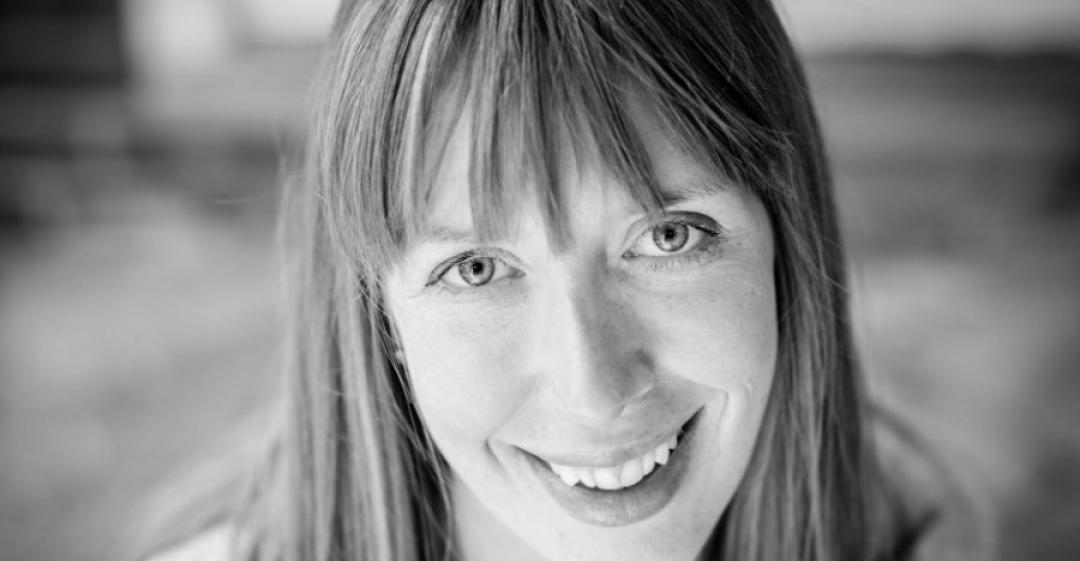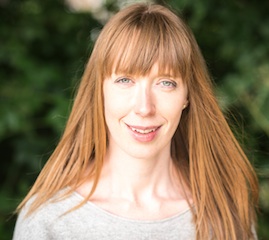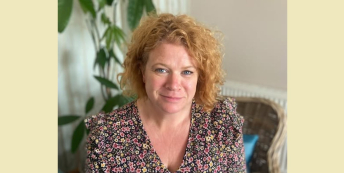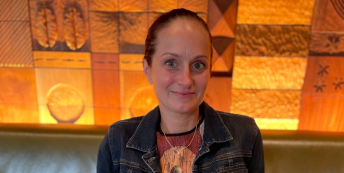“For most of my career, I'd been working towards what I thought was my 'dream role'. When I finally got to it, I was miserable.”

What work were you doing previously?
For nearly ten years, I worked within financial services.
I had many different types of roles, mostly related to strategy, product development, and project management. What that meant in practice was that I worked really long hours to help the business gain new customers, move into new markets, and maximise existing relationships.
What are you doing now?
I now run my own business, providing coaching to early-stage social, environmental and creative entrepreneurs.
I help them develop their business models, make decisions, and stay focused.
Why did you change?
I didn't leave financial services with a plan to become a business coach.
I left because I was no longer satisfied by the work that I was doing and knew that I needed to find something more fulfilling to do with the experience that I had built up.
When was the moment you decided to make the change?
For most of my career, I had been working towards what I thought was my 'dream role'.
When I finally got to it, I was miserable and I couldn't see what might be next on that career path. I didn't want a corner office. I didn't want to manage a huge team of people. I didn't want to take part in the politics.
I thought I'd just tired of the company. After all, I'd been there for eight years. So, I moved to a new company as a consultant, thinking that would not only give me a new experience but also protect me from some of the politics that I so wanted to avoid. Quite quickly, I became unhappy again.
But I stuck it out (because I didn't know what I wanted to do instead) and renewed my contract. When I signed the second renewal letter, I vowed that would be the last. I had three months to figure something else out, but things didn't quite work out to plan.
Instead, about six weeks into that final contract, I was in the office on a Monday morning sitting in a meeting. I became really annoyed by something that someone said. It was 8.30 a.m.! On a Monday!
Later that afternoon, I resigned and was out the door five days later. With no plan. I told myself I would take a few months out and not even think about it. And that's exactly what I did: I travelled, I volunteered in Zimbabwe, I experimented with ideas, I remained open-minded.
About four months later, I stumbled upon coaching. Two months after that, the idea for my own business came about. That was over two and a half years ago and I'm still going!
Are you happy with the change?
Absolutely.
What do you miss and what don't you miss?
There are some things about the industry that I did really find intellectually stimulating, and sometimes I miss those conversations.
Sometimes I also miss having financial security, but I've spent this year building up reserves to weather any slower periods.
There's so much I don't miss: the politics, the bureaucracy, the commute, working with people I don't respect, feeling annoyed on a Monday morning... I could go on!
How did you go about making the shift?
After taking a few months out to recharge, I realised that I wanted to do something which allowed me to help people, somehow.
I started to look into psychology, but learned that to retrain would take about seven years; that timeline scared me. What if seven years later I figured out that I didn't really like it? What would I do in the meantime while I was retraining? It just didn't seem to fit.
Then my husband asked if I had considered coaching. I hadn't. My two perceptions of coaching were people like Tony Robbins in the US, who I am nothing like, and women who had left their careers after having children and now felt they had the right to tell others how to live their lives better.
But in the spirit of being open-minded, I decided to try it out and went along to a weekend taster course to learn more. Firstly, my perceptions were so wrong. Sure, there are people in both of those camps, but there is so much more to coaching. Secondly, I learned that it could be used in a business context, and that way of interacting in business really appealed to me.
I left that weekend feeling inspired but still unsure. It wasn't until a few weeks later that I decided I would commit to a coaching qualification and a couple weeks after that I got going.
I still had to figure out exactly what I wanted to do with that qualification, but that evolved over the coming months. I had become more and more interested in social enterprise and other 'good' business. I saw that there were so many passionate people trying to start these types of businesses who just had no idea about business. I felt that I could really help these entrepreneurs to figure out their business model and strategy, so that they could go on to have a positive impact on the world around them.
And so I decided to focus my coaching business on them!
What didn't go well? What 'wrong turns' did you take?
I don't think that I took any 'wrong turns', but 'making it work' did take a lot longer than I thought it would.
Despite hearing that starting a business would take longer than I planned and cost more than I anticipated, I really believed that because I was going to work really hard and put lots of time and effort into it, it would be different for me. It wasn't!
It wasn't until this year (my second full year in business) that I feel a lot more confident about my future. I had to give myself time to learn. I had to give myself time to build up my network. I had to give myself time to test out the market and create products and services that people actually wanted to buy.
I've had to adapt my business model from how I originally thought it was going to work. And I've had to be flexible.
How did you handle your finances to make your change possible?
This is where my previous career was really beneficial!
I wouldn't have been able to focus 100% of my time and effort on my business without having savings to live off. I would have had to get at least a part-time job to keep me going. I'm really fortunate that I didn't have to to do so. It wouldn't have been impossible, but it would have taken even longer than it has. And I can see how people can lose motivation and give up on the switch.
What was the most difficult thing about changing?
Starting a business is hard work.
There are millions of things to do and limited time to do it all. It can be a bit isolating at times. It can be really frustrating sometimes. And some days can be really, really hard.
On those days, you kind of have to just give yourself permission to have a bad day and pick yourself up the next day to try again.
What help did you get? 
I worked with my own business coach pretty early on, within the first six weeks or so of officially starting my business.
Although I really couldn't afford it, I still credit that programme as being one of the keys to my success. She helped me to focus, figure out how to get myself out there, and make some key decisions.
Shortly after that, I joined a co-working space to get out of the house at least one day per week. I was a member there for about a year, which was great because I met other entrepreneurs whom I could share experience with and I stopped feeling so isolated. I continued to expand my network so I could bounce ideas around and sometimes just have a massive rant to other business owners who 'got it'.
What would you advise others to do in the same situation?
If you don't know what you want to do, just start experimenting.
Give yourself a different perspective. Figure out what you enjoy doing and what your innate skills are. Life's too short to be unhappy. Be brave and make the change!
To find out more about Danielle's services, visit www.stepandstone.co.uk
What lessons could you take from Danielle's story to use in your own career change? Let us know in the comments below.



